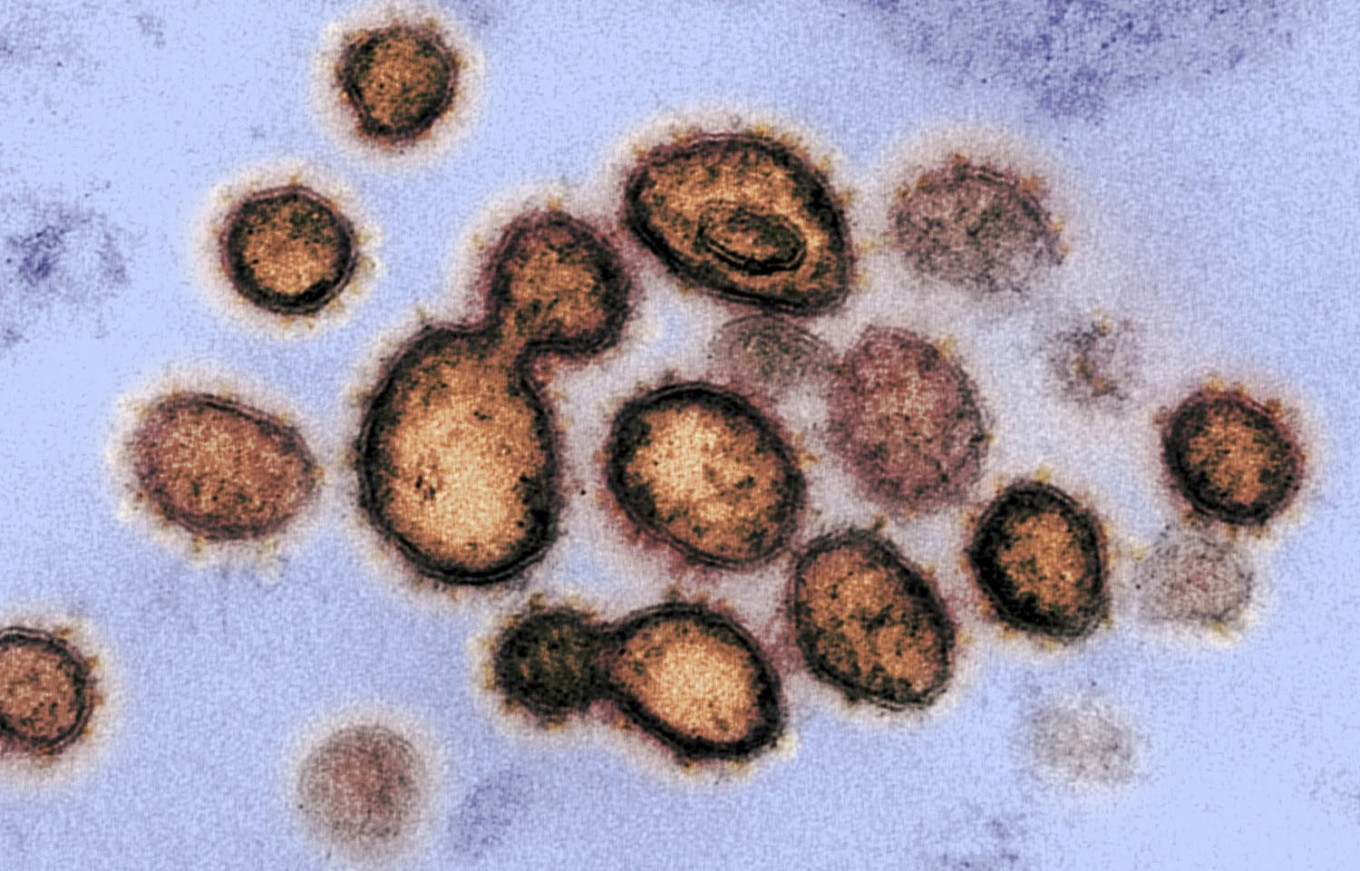Popular Reads
Top Results
Can't find what you're looking for?
View all search resultsPopular Reads
Top Results
Can't find what you're looking for?
View all search resultsStudy shows how quickly coronavirus spreads at home
Change text size
Gift Premium Articles
to Anyone
 This handout illustration image obtained February 27, 2020 courtesy of the National Institutes of Health taken with a transmission electron microscope shows SARS-CoV-2, the virus that causes COVID-19, isolated from a patient in the US, as Virus particles are shown emerging from the surface of cells cultured in the lab - the spikes on the outer edge of the virus particles give coronaviruses their name, crown-like.The novel coronavirus is twice as infectious within households than similar diseases such as SARS, with a substantial number of additional infections spreading before a COVID-19 sufferer shows any symptoms, according to modeling released Thursday. (AFP/Handout / National Institutes of Health)
This handout illustration image obtained February 27, 2020 courtesy of the National Institutes of Health taken with a transmission electron microscope shows SARS-CoV-2, the virus that causes COVID-19, isolated from a patient in the US, as Virus particles are shown emerging from the surface of cells cultured in the lab - the spikes on the outer edge of the virus particles give coronaviruses their name, crown-like.The novel coronavirus is twice as infectious within households than similar diseases such as SARS, with a substantial number of additional infections spreading before a COVID-19 sufferer shows any symptoms, according to modeling released Thursday. (AFP/Handout / National Institutes of Health)
T
he novel coronavirus is twice as infectious within households than similar diseases such as SARS, with a substantial number of additional infections spreading before a COVID-19 sufferer shows any symptoms, according to modeling released Thursday.
Researchers based in China and the United States said their findings could have profound impacts on reducing the number of new infections as the pandemic progresses.
Using data on 350 COVID-19 patients and nearly 2,000 of their close contacts in the city of Guangzhou, China, the researchers estimated the virus' "secondary attack rate" -- that is, the probability that an infected person transmits the disease to someone else.
They found that while the average patient had just a 2.4 percent chance of infecting someone they did not live with, that figure jumped to 17.1 percent -- around one in six -- among cohabitants.
According to their models, which rely on data collated in January and February but have been updated to reflect the latest developments, the likelihood of household infection was highest among over-60s, and lowest among under-20s.
The overall chances of infecting a family member or live-in partner with COVID-19 are twice as high as with SARS, and three times higher than MERS, another coronavirus, they found.
Significantly, the researchers found that the probability of a COVID-19 carrier infecting a family member or flatmate was significantly higher -- 39 percent -- before they started showing symptoms than afterwards.
This suggests that the virus is easily transmissible within its incubation period and may be passed on by individuals who don't know they are infected.
The team said that isolation within households cut the total number of COVID-19 cases among the study cohort by 20-50 percent compared with no quarantine.
"Although the effect of case isolation seems moderate, the high infectivity of the virus during the incubation period suggests quarantine of asymptomatic contacts could have prevented more onward transmissions," said Qin-Long Jing from the Guangzhou Center for Disease Control and Prevention.
Many European nations, before implementing weeks-long lockdowns, issued public health advice only to stay at home if an individual was sick -- that is, showing symptoms typical to the virus.
The research suggests that may have already been too late to prevent COVID-19 circulating widely.
Writing in a linked comment, Virginia Pitzer from the Yale School of Public Health said that a "key difference" between COVID-19 and other coronaviruses was its "substantially higher" probability of transmission in its incubation period.
She said the research, published in The Lancet, "confirms the relative importance of pre-symptomatic transmission and the relationship between older age and susceptibility, key insights which should inform design of intervention strategies."









